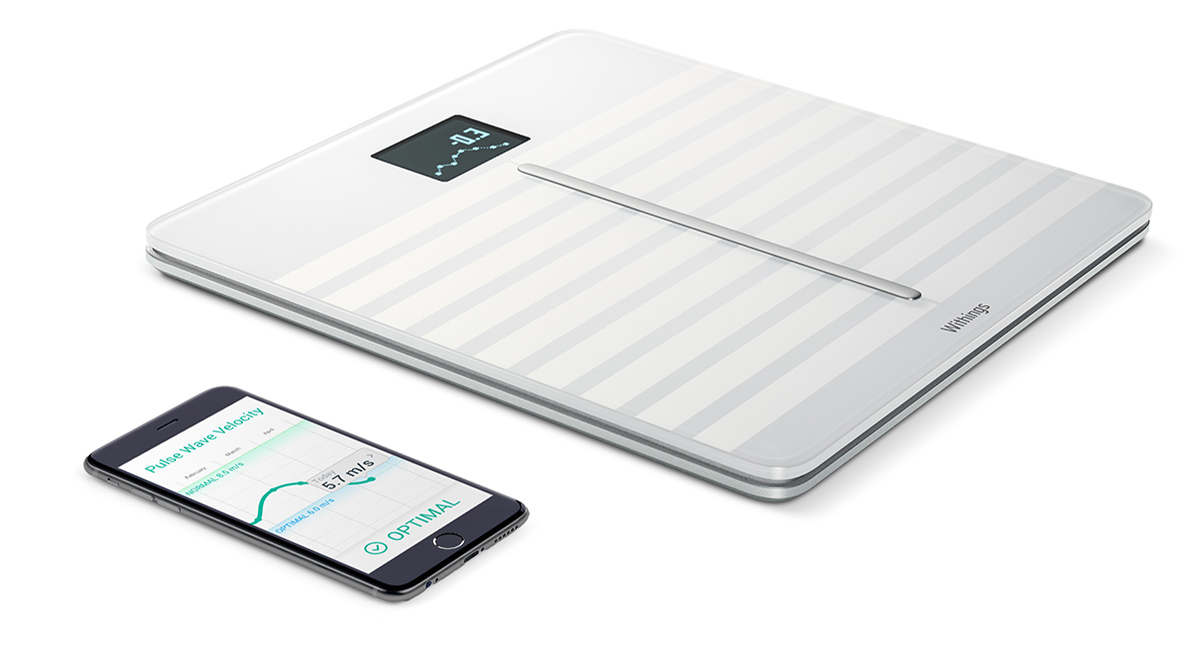Can a Scale Really Measure Your Heart Health?

Body Cardio photo provided
A bathroom scale that assesses your weight, body fat percentage, standing heart rate, and cardiovascular health probably sounds like either a dream come true (if you’re a data geek) or your worst nightmare (if you’re just about anybody else).
No matter which camp you fall into, you can now own just such a scale. Withings, a wearable and connected technology company with U.S. headquarters in Cambridge, on Wednesday unveiled the Body Cardio, an ultra high-tech scale that tells you more than you probably wanted to know about your health.
Body Cardio, which costs $180, uses a measurement called Pulse Wave Velocity (PWV)—defined as “the speed at which heartbeat-generated vibrations spread out along the arterial wall,” according to a release from the company—to generate its cardiovascular insights. PWV has long been associated with heart health, but it’s typically measured in a clinical setting.
Withings says its scale is the first at-home product that can measure PWV, which it does by monitoring how long it takes blood to flow from your heart to your feet. That number won’t pop up on the scale itself; you’ll have to go to the accompanying Health Mate app to to find that figure, along with a host of other health data.
The scale also uses a technique called bioelectrical impedance to measure body composition. Essentially, it measures the strength of an electrical current running through your body, and uses that to assess your body fat percentage and water, muscle, and bone mass.
But can a scale, albeit a tricked-out scale, really tell you all of those things? As with most wearables, it’s likely best to take the results with a grain of salt—and if you’re looking for a reading that’s as accurate as possible, it’s always best to see a medical professional.
Here’s my take after trying it: The weight shown near-perfectly matched one taken by my doctor a week earlier, which is already a step up over often-faulty bathroom scales. The body composition and heart rate measurements seemed in keeping with my fitness level, although, without outside testing, it’s impossible to verify their accuracy. The scale also refused to analyze a (semi-unwilling) co-worker, suggesting that the technology is sophisticated enough to recognize someone who isn’t its primary user—or that we simply had technical difficulties.
The bottom line? See a doctor if you have a good reason for having your cardiovascular health or body composition assessed. But if you’re simply a wearables addict looking for more measurements to add to your arsenal, the Body Cardio may be right up your alley.
Retails for $180 at Apple stores or withings.com.


